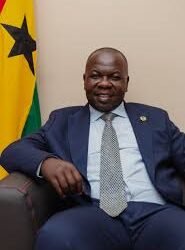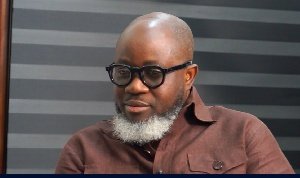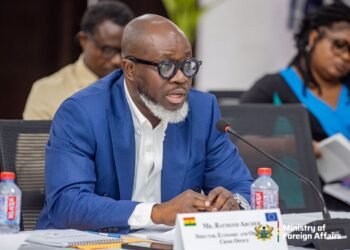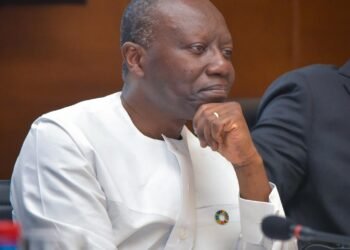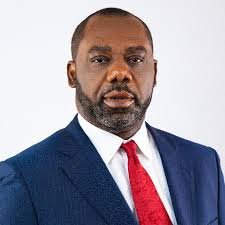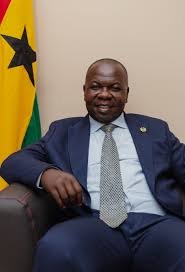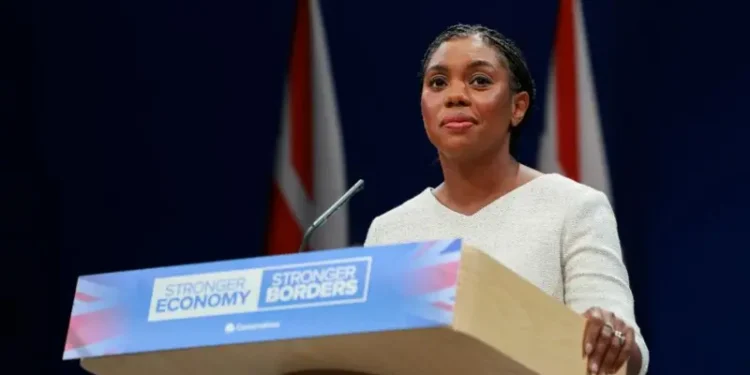The Office of the Special Prosecutor (OSP) has firmly defended its decision to declare former Finance Minister Ken Ofori-Atta wanted following his delayed response to an invitation for questioning.
The OSP insists that its approach has been entirely lawful and appropriate, countering public criticisms suggesting that it could have exercised more patience or pursued alternative investigative methods.
In a recent statement, Sammy Darko, Director of Research, Strategy, and Communications at the OSP, addressed concerns regarding the handling of Ofori-Atta’s case.
He rejected claims that the OSP could have either waited for the former minister to return to Ghana at his own convenience or traveled to the United States to interrogate him.
He clarified that such approaches do not align with legal processes governing criminal investigations.
According to Darko, the OSP was not merely seeking to interview Ofori-Atta but was investigating him as a suspect. “People forget that Mr. Ofori-Atta is not a person of interest to the OSP. Ofori-Atta is a suspect.”
He explained that, unlike a person of interest, a suspect is someone whom law enforcement intends to arrest and process through the criminal justice system.

Therefore, physical presence in Ghana is necessary for the investigative and legal proceedings to proceed.
Meanwhile, critics had suggested that the OSP could have handled the situation differently, arguing that Ofori-Atta should have been given more time to attend to the summons.
Some also proposed that the OSP could have charged him in absentia.
However, Darko dismissed these views, stating that under Ghanaian law, “You can only try a person in absentia after you have charged a person, a person has refused to attend to court.”
As such, he indicated that since Ofori-Atta had not been officially charged, such a legal course was not an option.
The OSP emphasized that it was left with no choice but to take action to prevent undue delays.
Darko noted that law enforcement agencies are only required to defer investigations if the individual in question is medically incapacitated or if a definitive date is agreed upon in a manner acceptable to the investigative body.
“There are solid grounds that the law enforcement agency might agree with you and defer. One of them being that you are invalid… or the second one that you are agreeing to give them a definitive date which may be reasonable to the law enforcement and that they agree with you and say you can come.”
Sammy Darko
He pointed out that in Ofori-Atta’s case, no such agreements had been made initially, which led to the decision to declare him wanted.
Definitive Date Given, OSP Responds
Following his designation as wanted, Ofori-Atta, through his lawyers, wrote to the OSP, providing a specific date in May when he would be available for questioning.
In response, the OSP agreed to remove him from the wanted list, but with the caveat that failure to appear on the agreed date would result in further action to compel his presence.
“Now he’s written back to his lawyers to ask that now he will give us a definitive date, and he has given us a definitive date. He went on to request that we should take him off the wanted list and that the OSP has agreed that due date we agree to come. However, if at the agreed date you do not show up, we will bring you down to Ghana.”
Sammy Darko
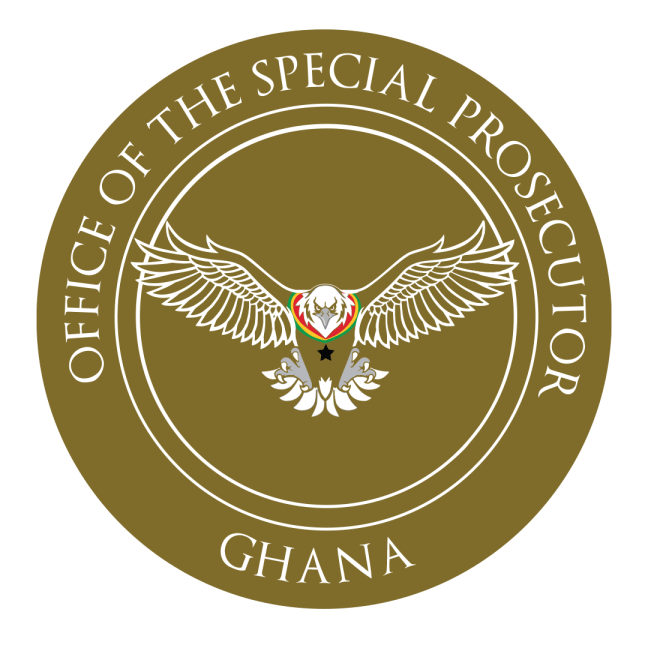
Darko reiterated that the OSP’s actions were guided strictly by legal principles and that no individual, regardless of status, has the right to determine when they will comply with a law enforcement summons.
He underscored that the office has been meticulous in its adherence to due process, refuting claims that its actions were arbitrary or politically motivated.
Meanwhile, discussions have emerged regarding whether the OSP should issue an apology to Ofori-Atta over previous allegations suggesting that he may have staged a supposed raid on his residence.
Darko addressed this by stating that the OSP acted on intelligence available at the time.
He explained that while the OSP never definitively accused Ofori-Atta of staging the incident, its statements were made in response to allegations from his household and sympathizers that the OSP itself had been responsible for the incident.
The controversy arose when some media reports suggested that unknown individuals, allegedly from the OSP, had stormed Ofori-Atta’s residence. “The Herald newspaper had interviewed the wife of Mr. Ofori-Atta, saying that those who came there said they were from the OSP.”
Darko emphasized that before the OSP’s public response, Ofori-Atta and his household were already aware that the OSP was not responsible for the supposed raid.
The office, therefore, found it necessary to clarify the situation by stating that if the act was not an imposter operation, then it may have been staged.
OSP Calls for Accountability
Despite calls for an apology, the OSP maintains that its statements were made within the proper context and were based on intelligence available at the time.
Darko argued that if any party owed an apology, it was Ofori-Atta and his household who had initially suggested that the OSP was behind the incident. “Mr. Ofori-Atta and his household need to apologize to the Office of the Special Prosecutor for trying to label it as a Rambo-style organization.”
He further pointed out that national security agencies have not provided any clarifications on the matter, adding to the speculation and confusion surrounding the incident.
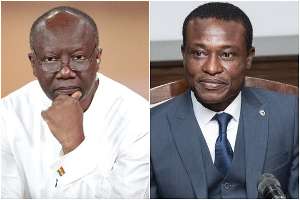
He also took the opportunity to highlight the unique role of the OSP as a law enforcement body with built-in accountability measures.
According to him, unlike many other investigative agencies, the OSP is required by law to maintain transparency and engage the public in its operations.
This, he noted, is why the office actively communicates its actions to Ghanaians.
“The Office of the Special Prosecutor had made it clear that the intelligence available to the office at that time was that this could be an imposter action or that it was staged to cause dissatisfaction for the Office of the Special Prosecutor.”
As the case unfolds, the OSP remains steadfast in its position, reinforcing that its primary objective is to uphold the rule of law without fear or favor.
The coming months will determine whether Ofori-Atta complies with the agreed summons date or if further legal action will be necessary to bring him before the investigative body.
READ ALSO: Rapper ASAP Rocky Not Guilty In Gun Assault Trial




